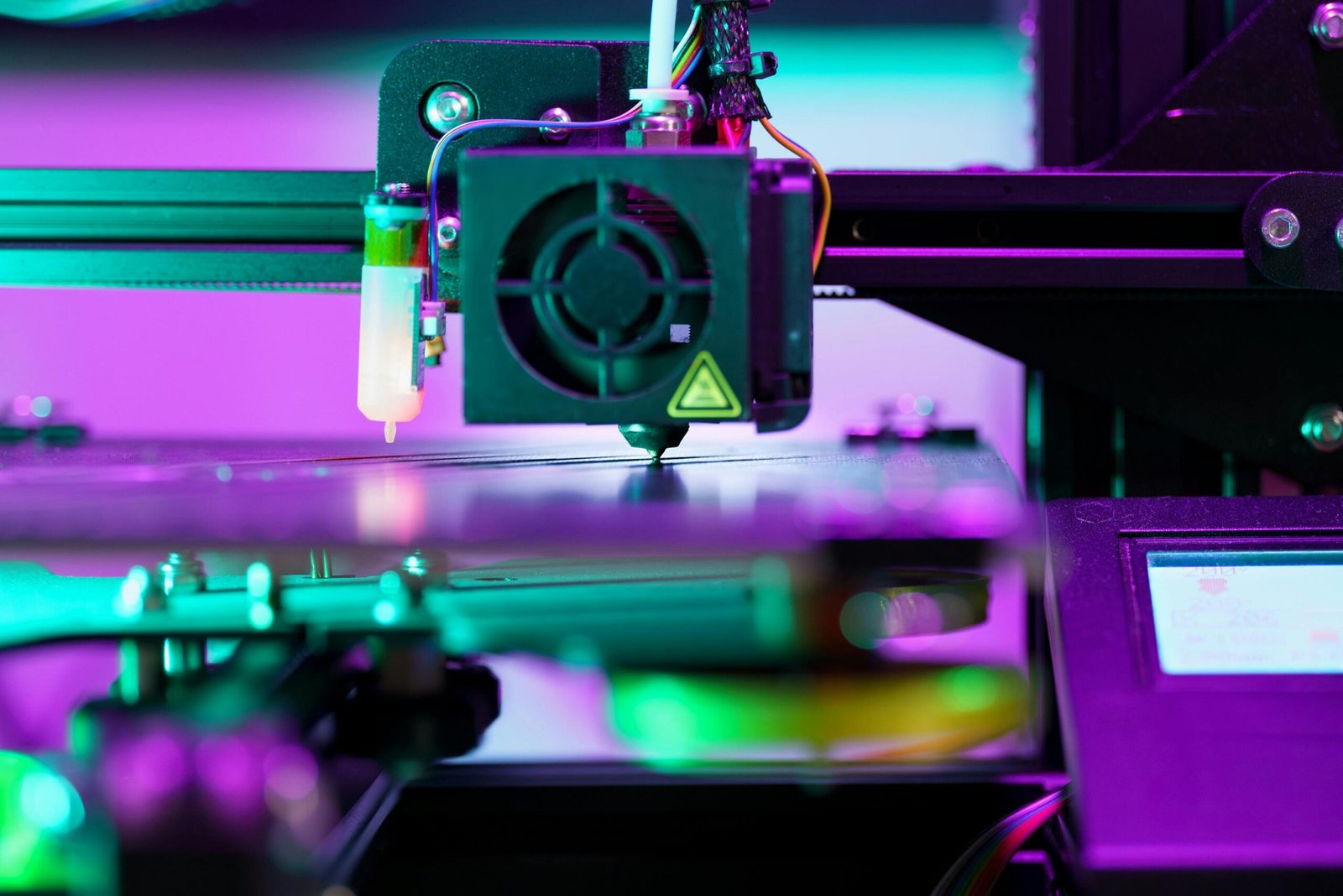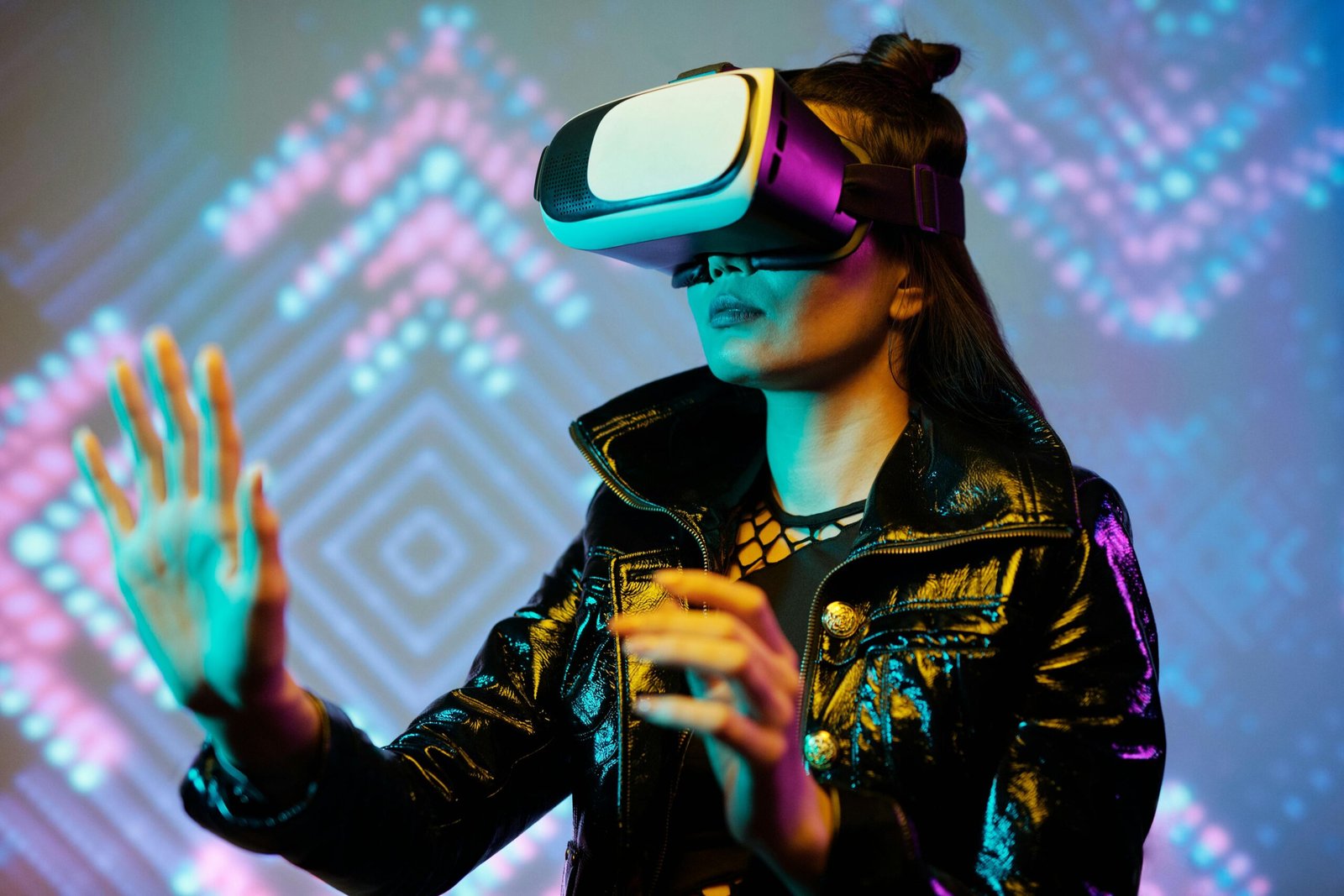Blockchain technology has long been associated with cryptocurrency, specifically Bitcoin and Ethereum. However, as the technology matures, it is becoming clear that blockchain has applications far beyond just digital currencies. From supply chain management to voting systems, healthcare, and even the entertainment industry, blockchain has the potential to revolutionize how we handle data, transactions, and trust across many sectors.
In this article, we’ll explore how blockchain technology is evolving and its applications in 2025 and beyond. If you’re wondering what blockchain is, how it works, and how it can transform various industries, this guide will give you an in-depth look at the future of blockchain beyond cryptocurrency.
1. What is Blockchain Technology?
Before we dive into its broader applications, let’s first understand what blockchain is and how it works.
At its core, blockchain is a decentralized digital ledger that records transactions across many computers in such a way that the recorded transactions cannot be altered retroactively. This system is designed to be transparent, secure, and immutable. Each “block” in the blockchain contains a set of transactions, and these blocks are linked in a chain, hence the name “blockchain.” The decentralized nature means there is no central authority, which makes blockchain highly secure and resistant to tampering.
While initially designed for cryptocurrencies, blockchain’s decentralized, transparent, and immutable nature has made it applicable to a wide variety of industries.
2. Blockchain in Supply Chain Management
In 2025, blockchain is expected to be widely adopted in supply chain management. Transparency and traceability will be at the forefront of supply chain operations, thanks to blockchain’s unique capabilities.
End-to-End Transparency
Blockchain will allow businesses and consumers to trace products through every step of the supply chain, from raw materials to finished goods. Whether it’s food, electronics, or pharmaceuticals, blockchain can provide a detailed record of the product’s journey, ensuring that all parties involved in the process adhere to high standards of quality, sustainability, and ethics.
Improved Efficiency
Blockchain can automate processes such as payments, inventory management, and compliance checks. For example, by recording transactions in real-time, businesses can instantly verify shipments, payments, and contracts. This level of automation reduces human error, delays, and fraud, ensuring a smoother, faster, and more efficient supply chain.
Fighting Counterfeit Products
The fashion and luxury industries, in particular, will benefit from blockchain’s ability to track the authenticity of products. Imagine buying a high-end luxury handbag or an expensive watch and being able to scan a QR code that gives you the entire history of that product. This reduces the risk of counterfeits and guarantees that consumers are getting what they paid for.
3. Blockchain in Healthcare
The healthcare sector stands to benefit immensely from blockchain technology, particularly when it comes to managing patient data, streamlining payments, and ensuring the security of medical records.
Secure Patient Data
In healthcare, maintaining patient confidentiality and securing sensitive data is paramount. Blockchain can offer an encrypted and immutable solution to this issue by securely storing and sharing patient records among authorized professionals. Blockchain will allow healthcare providers to maintain complete and secure digital records that can be easily accessed and updated across the medical community, while ensuring patient privacy.
Streamlined Payments and Billing
Blockchain can significantly reduce administrative costs associated with insurance claims, billing, and payments. Using smart contracts, which are self-executing contracts with the terms of the agreement directly written into code, healthcare providers and insurance companies can automate payments and claim processing, reducing errors and delays.
Drug Supply Chain Transparency
Pharmaceutical companies are already using blockchain to track the production and distribution of drugs, ensuring their authenticity and safety. In 2025, we’ll likely see a greater push for blockchain to trace drugs through every step of the supply chain, helping to combat counterfeit drugs, reduce fraud, and improve patient safety.
4. Blockchain in Voting Systems
Blockchain could revolutionize how we think about elections, providing a secure, transparent, and efficient way to vote. This is especially relevant as concerns about election security and voter fraud continue to grow.
Secure Voting
One of the biggest challenges in modern elections is ensuring that votes are accurately recorded and that the process is free from tampering or fraud. Blockchain provides an immutable ledger where each vote is recorded, making it nearly impossible to alter once it’s been cast. This can provide voters with confidence that their vote has been counted accurately.
Remote Voting
In the future, blockchain could enable secure remote voting. Whether it’s through smartphones or computers, blockchain would allow people to vote securely from anywhere, increasing voter participation while maintaining election integrity. This is especially important in the context of global crises, like the COVID-19 pandemic, where in-person voting could pose a health risk.
5. Blockchain in Real Estate
Buying or selling property often involves a lot of paperwork, multiple intermediaries, and significant delays. Blockchain can streamline these processes and make real estate transactions more efficient and transparent.
Streamlining Property Transactions
Blockchain can digitize and streamline the entire process of buying and selling property, from contract signing to property transfers. With smart contracts, transactions can be automatically executed when conditions are met, such as when payments are made or ownership is transferred. This removes the need for intermediaries like real estate agents, lawyers, and title companies, reducing both the cost and time associated with property transactions.
Property Title and Ownership Records
Blockchain can also solve the problem of lost or fraudulent property titles. By storing property ownership records on a blockchain, ownership of assets can be easily traced, ensuring clear and indisputable ownership histories. This reduces the risk of title fraud and improves transparency in the real estate market.
6. Blockchain in Financial Services Beyond Cryptocurrency
Blockchain’s impact on the financial sector goes beyond just supporting cryptocurrencies. In 2025, it’s expected that blockchain will be more widely used for financial transactions, insurance, and asset management.
Cross-Border Payments
One of the most practical uses of blockchain in finance is its ability to facilitate cross-border payments. Traditional methods of transferring money internationally can be slow, costly, and fraught with complications. Blockchain, however, can make cross-border payments faster and cheaper by eliminating intermediaries like banks and currency exchanges. This could be a game-changer for global commerce and remittance services.
Smart Contracts in Insurance
Insurance companies are already experimenting with smart contracts to automate claims processing. Smart contracts allow for the automatic payout of claims when certain conditions are met, such as when an insured event (e.g., an accident or natural disaster) occurs. This reduces fraud, accelerates claims processing, and increases transparency in the insurance industry.
Decentralized Finance (DeFi)
The rise of decentralized finance (DeFi) applications is another significant trend that will grow by 2025. DeFi leverages blockchain to offer financial services such as lending, borrowing, and trading without the need for traditional banks or financial institutions. These services are powered by smart contracts and allow users to retain greater control over their assets.
7. Blockchain in the Entertainment Industry
The entertainment industry is being disrupted by blockchain technology, especially when it comes to content distribution, copyright protection, and fan engagement.
Digital Rights Management
Artists and content creators often face challenges when it comes to protecting their intellectual property online. Blockchain can help manage and enforce digital rights by providing a transparent record of ownership. Each time a piece of content (whether it’s a song, movie, or piece of art) is used or purchased, blockchain would track the transaction and ensure that the creator gets paid fairly.
Ticketing and Anti-Scalping
Blockchain can also revolutionize the way tickets are sold for concerts, sports events, and other entertainment activities. By recording ticket sales on a blockchain, event organizers can ensure that tickets are genuine and traceable, preventing issues like scalping and counterfeit tickets. This could make the process of buying and selling tickets more transparent and secure.
NFTs and Digital Collectibles
Non-fungible tokens (NFTs), which are unique digital assets stored on a blockchain, have exploded in popularity. In 2025, NFTs are expected to become more mainstream, allowing artists, musicians, and creators to monetize their work directly through digital collectibles. Fans can own unique pieces of art, music, or other digital content, and blockchain ensures their authenticity and ownership.
8. Blockchain in Artificial Intelligence (AI)
The integration of blockchain and AI is another emerging area of innovation. AI can benefit from blockchain’s secure and transparent data management capabilities, while blockchain can enhance AI models by ensuring data integrity and trust.
Data Security and Privacy
AI relies on large datasets to train algorithms and make predictions. Blockchain can help ensure that these datasets are secure, tamper-proof, and accessible only to authorized parties. Additionally, AI models could be shared on the blockchain, allowing for greater transparency and traceability of AI decision-making processes.
Decentralized AI Models
Blockchain could enable decentralized AI, where AI algorithms and models are distributed across many different nodes rather than being controlled by a central entity. This decentralization could make AI more democratic and open, fostering innovation while maintaining privacy and security.
9. Conclusion: The Transformative Power of Blockchain
As we look ahead to 2025, it’s clear that blockchain has the potential to disrupt and transform numerous industries. Beyond cryptocurrency, blockchain will shape how we manage data, execute transactions, and build trust in the digital world. From healthcare to finance, real estate, entertainment, and beyond, blockchain is laying the foundation for a more transparent, secure, and decentralized future.
While challenges remain, such as scalability and regulatory concerns, the future of blockchain technology looks incredibly promising. As the world embraces these innovations, we can expect to see even more industries adopting blockchain to streamline processes, enhance security, and reduce costs.
FAQs
1. How does blockchain improve data security?
Blockchain improves data security by using encryption and decentralized storage. Since each block in the chain contains a record of all previous transactions, it is extremely difficult to alter or tamper with the data once it is added, providing a high level of security.
2. Can blockchain be used for voting in national elections?
Yes, blockchain has the potential to revolutionize voting by providing a secure and transparent platform for digital voting. It can prevent tampering and fraud, ensuring that each vote is accurately recorded and counted.
3. Is blockchain only useful for financial applications?
No, blockchain’s use extends far beyond finance. It is being explored for applications in healthcare, supply chain management, real estate, voting systems, and many other sectors where transparency, security, and decentralization are valuable.
4. What is a smart contract?
A smart contract is a self-executing contract where the terms of the agreement are written directly into code. Once the conditions are met, the contract is automatically executed, reducing the need for intermediaries and increasing efficiency.
5. Can blockchain be used to reduce counterfeit products?
Yes, blockchain can help reduce counterfeit products by providing a transparent and immutable record of a product’s journey through the supply chain. Consumers and businesses can verify the authenticity of products using blockchain’s traceable data.




